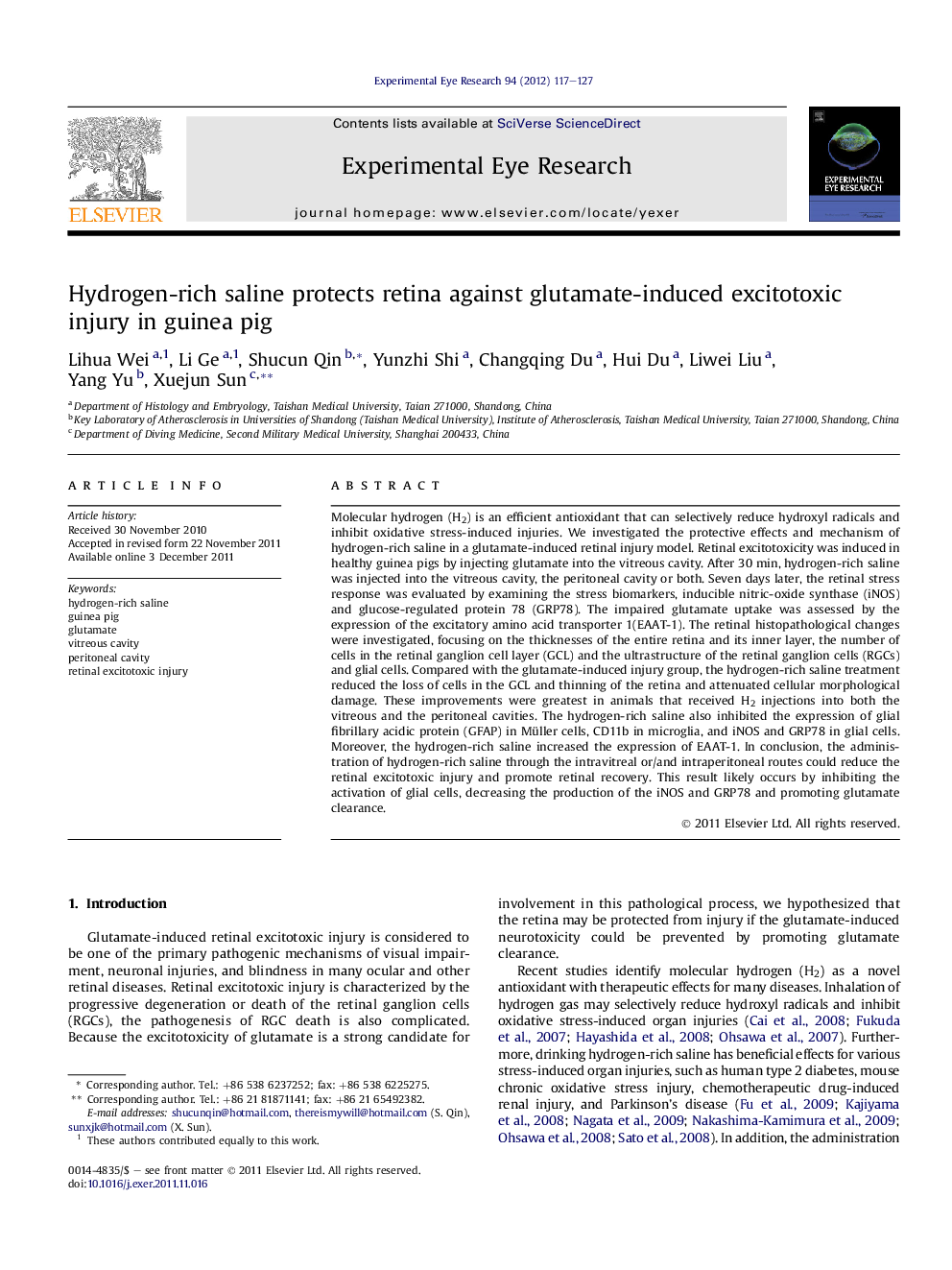| کد مقاله | کد نشریه | سال انتشار | مقاله انگلیسی | نسخه تمام متن |
|---|---|---|---|---|
| 4011524 | 1261150 | 2012 | 11 صفحه PDF | دانلود رایگان |

Molecular hydrogen (H2) is an efficient antioxidant that can selectively reduce hydroxyl radicals and inhibit oxidative stress-induced injuries. We investigated the protective effects and mechanism of hydrogen-rich saline in a glutamate-induced retinal injury model. Retinal excitotoxicity was induced in healthy guinea pigs by injecting glutamate into the vitreous cavity. After 30 min, hydrogen-rich saline was injected into the vitreous cavity, the peritoneal cavity or both. Seven days later, the retinal stress response was evaluated by examining the stress biomarkers, inducible nitric-oxide synthase (iNOS) and glucose-regulated protein 78 (GRP78). The impaired glutamate uptake was assessed by the expression of the excitatory amino acid transporter 1(EAAT-1). The retinal histopathological changes were investigated, focusing on the thicknesses of the entire retina and its inner layer, the number of cells in the retinal ganglion cell layer (GCL) and the ultrastructure of the retinal ganglion cells (RGCs) and glial cells. Compared with the glutamate-induced injury group, the hydrogen-rich saline treatment reduced the loss of cells in the GCL and thinning of the retina and attenuated cellular morphological damage. These improvements were greatest in animals that received H2 injections into both the vitreous and the peritoneal cavities. The hydrogen-rich saline also inhibited the expression of glial fibrillary acidic protein (GFAP) in Müller cells, CD11b in microglia, and iNOS and GRP78 in glial cells. Moreover, the hydrogen-rich saline increased the expression of EAAT-1. In conclusion, the administration of hydrogen-rich saline through the intravitreal or/and intraperitoneal routes could reduce the retinal excitotoxic injury and promote retinal recovery. This result likely occurs by inhibiting the activation of glial cells, decreasing the production of the iNOS and GRP78 and promoting glutamate clearance.
► Hydrogen-rich saline treatment reduced the glutamate-induced retinal neuron injury.
► Hydrogen-rich saline treatment inhibited the activation of retinal glial cells.
► Hydrogen-rich saline treatment decreased the production of the stress biomarkers.
► Hydrogen-rich saline treatment maintained the activity of EAAT-1.
Journal: Experimental Eye Research - Volume 94, Issue 1, January 2012, Pages 117–127